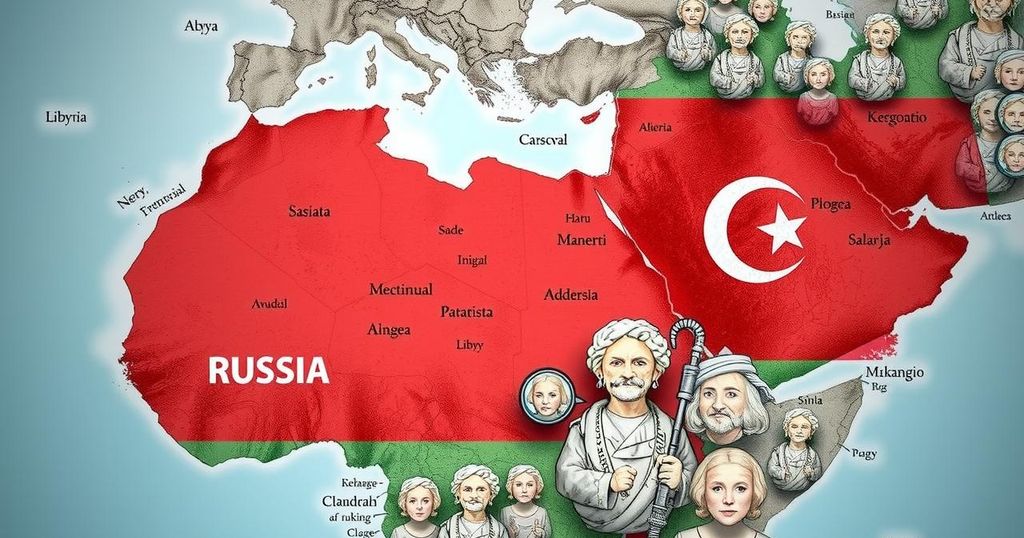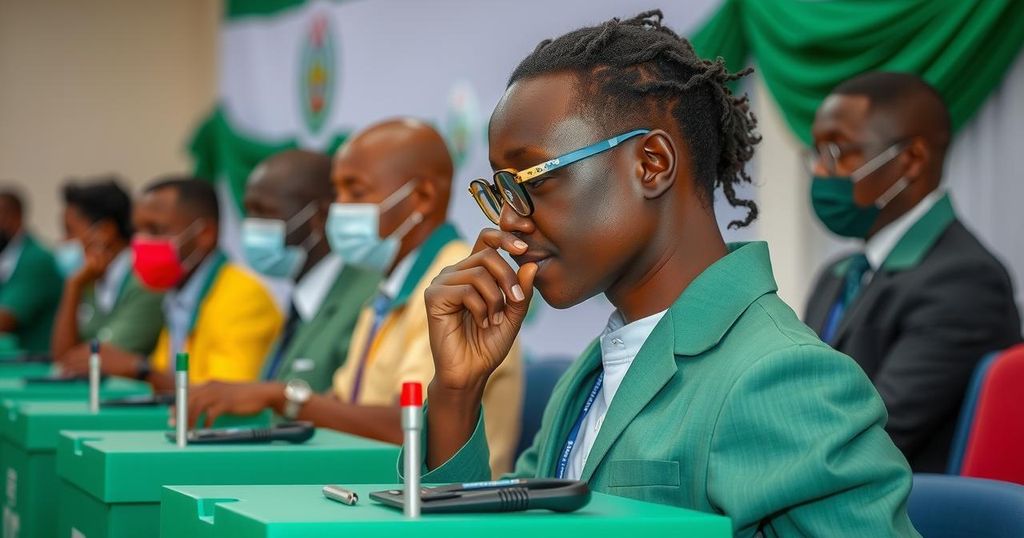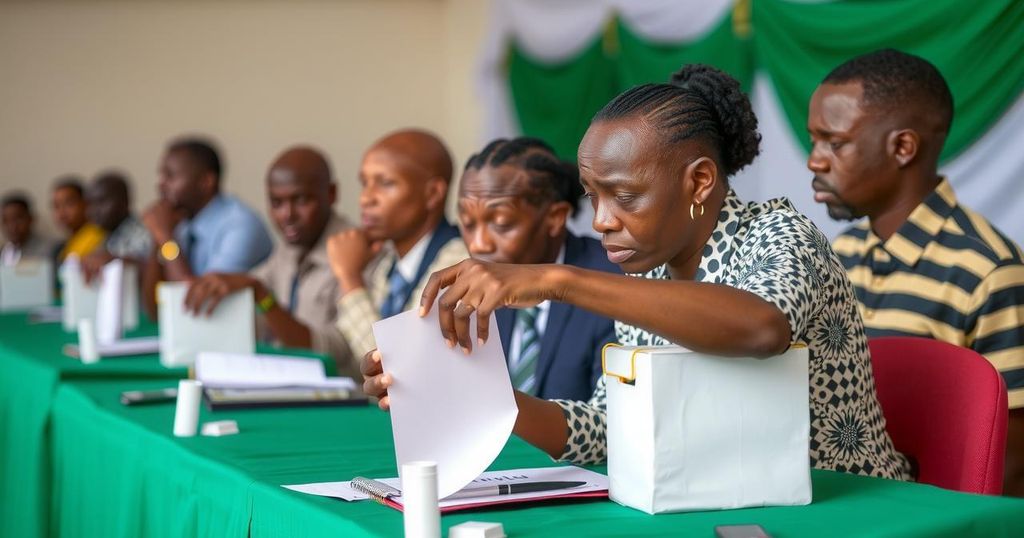World news
AFP, AFRICA, AHMED AL - SHARAA, ARMS TRADE, ASIA, ATLANTIC, BASHAR AL - ASSAD, BELARUS, CENTRAL AFRICAN REPUBLIC, CONFLICT RESOLUTION, EUROPE, EUROPE/ASIA, EYES ON WAGNER, GOVERNMENT OF NATIONAL UNITY, JA, KHALIFA HAFTAR, KR, KREMLIN, LIBYA, MEDITERRANEAN, MIDDLE EAST, MILITARY, MOROCCO, MOSCOW, NORTH AMERICA, RUSI, RUSI THINK TANK, RUSSIA, RUSSIA-UKRAINE WAR, SAHARAN AFRICA, SAHEL, SPARTA, SUDAN, SYRIA, SYRIAN, TO, TOBRUK, TURKEY, UK, UNITED STATES, WAGNER, WAR
Aisha Khan
0 Comments
Russia Shifts Focus to Libya as Strategic Anchor in Africa Amid Changes in Syria
The article explores Russia’s strategic pivot from Syria to Libya following the decline of Bashar al-Assad’s regime. With Russian troops and military resources increasingly being deployed to Libya to support Khalifa Haftar, Russia aims to preserve its influence in Africa. However, the challenges posed by Libya’s complex political landscape and competing foreign interests complicate Russia’s objectives as it seeks to maintain a foothold in the region.
Following the fall of Syrian ally Bashar al-Assad, Russia is pivoting its focus towards Libya as a new strategic launchpad in Africa. The Kremlin maintained military operations in Syria through a coastal port and air base, using them to bolster influence in the Mediterranean and regions of Africa such as the Sahel and the Central African Republic. With the new Syrian leadership under Ahmed al-Sharaa, who has expressed a desire for continued Russian presence, Russia must nevertheless reassess its strategy. Russian mercenaries are actively supporting Khalifa Haftar in eastern Libya against the Tripoli-based Government of National Unity (GNU), potentially allowing Russia to preserve its missions in Africa amidst its declining influence in Syria.
In recent months, there has been a notable increase in Russian military presence in Libya. Reports indicate that approximately 800 Russian troops were present as of February 2024, expanding to 1,800 by May. There are also indications of military equipment transfers from Syria to Libya, including advanced air defense systems such as the S-300 and S-400 batteries. The transfers, along with troop movements, epitomize Russia’s urgent necessity to replace its Syrian foothold. As expert Jalel Harchaoui articulated, the situation reflects a broader imperative of self-preservation for Russia, as it faces diminishing advantages in Syria.
Moreover, analysts emphasize that the Russian approach to Libya extends beyond merely substituting one proxy for another; it is viewed as part of a long-term strategy to enhance Moscow’s strategic positioning in Africa. The Libyan theater, although more complicated than Syria due to its fractured political landscape and the presence of multiple foreign powers, presents an opportunity for Russia to exert influence over Western interests in the region. The unfolding dynamics are further complicated by the alliances formed between Turkey and the GNU, alongside Egypt and the United Arab Emirates’ support for Haftar. This complex backdrop calls for the Kremlin to exercise caution in its gambit, ensuring that it has contingency plans should its Libyan ally falter.
The Libya scenario presents a multifaceted challenge for Russia, as it seeks to consolidate power while navigating an intricate geopolitical landscape marked by competing interests. Key players within the region maintain relationships on both sides, complicating the Russian military’s operations compared to the relative secrecy afforded in Syria. Going forward, Russia faces significant hurdles in replicating its assertive behavior in Libya, as the historical precedent shows the pitfalls of relying on local strongmen without a contingency plan. The outcome of Russia’s endeavors in Libya will be pivotal for its strategic interests in Africa and beyond.
The article addresses Russia’s shift in strategic focus from Syria to Libya amidst evolving geopolitical landscapes in both regions. The fall of Bashar al-Assad from power in Syria has necessitated a reevaluation of Russia’s military and political agendas, specifically in maintaining its influence in Africa. With Libya emerging as a potential new launch site for Russian operations, the article highlights the intricacies of involvement in a politically fragmented state. As Russia seeks to fortify its position through support for Khalifa Haftar, the dynamics of partnerships in Libya serve as a critical focal point in understanding Russia’s broader ambitions in Africa and its response to Western interests.
In conclusion, Russia’s attention has shifted towards Libya as it confronts an uncertain future following the changes in Syria. The Kremlin’s efforts to counterbalance its waning influence in Syria by bolstering support for Haftar in Libya illustrates its aim to secure its strategic interests in Africa. However, the complexities of Libyan politics, coupled with regional power dynamics, pose significant challenges for Russia’s ambitions. As the situation unfolds, the outcomes of its involvement in Libya will have far-reaching implications for both regional stability and Russia’s geopolitical strategy.
Original Source: thedefensepost.com




Post Comment